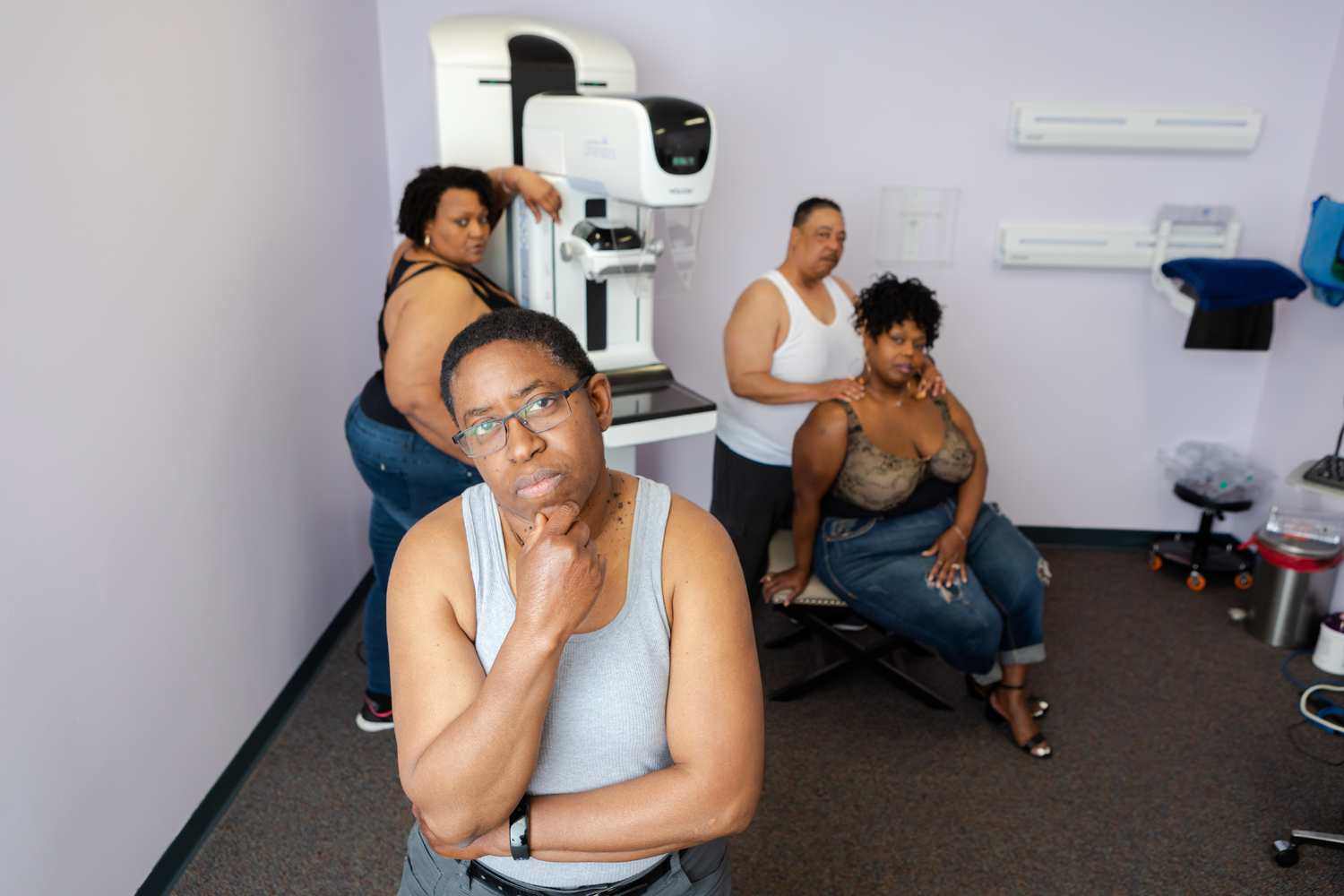The State of Breast and Chest Tissue Health of Sexual and Gender Minorities
A report by Fung et al. (2019) suggests that sexual and gender minority individuals (SGM) may have a higher risk than their cisgender, heterosexual counterparts for breast/chest tissue cancer. Past negative experience with healthcare providers has been reported to prevent SGM from seeking care that is beneficial to their health. Milner & McNally (2020) reported that psychological barriers and non-disclosure of sexual identity due to fear of bias, discrimination, and stigma hindered adherence to mammography screening guidelines for lesbian, bisexual and transgender identified folx. Similarly, Bazzi et al. (2015) reported that transgender individuals, lesbians, and bisexual folx were less likely to adhere to mammography screening guidelines than their cisgender, heterosexual peers. These mammography disparities are interconnected and may cause late diagnosis and increase the severity of breast/chest tissue cancer.
According to the American Cancer Society (2020), being knowledgeable about the risk and following preventative measures for breast/chest tissue cancer can reduce or lower the risk. However, negative experiences within the healthcare system could make this challenging for lesbian-identified folx. A study conducted to show the difference in mammography usage between SGM and non-sexual minority individuals indicated that SGM were less likely to report preventative care and more often obtained a mammogram when a problem such as a lump or distortion in breast/chest tissue is suspected (Williams et al., 2020). This difference in mammography rates indicates that the lesbian-identified group may not participate in routine screenings due to past negative experience with a healthcare provider.
Sexual and gender minority individuals of color experience a significant disparity in breast/chest tissue cancer care than any other non-minority racial LGBTQIA+ group. An intersection of race and sexual/gender identity contributes to differences in breast/chest tissue cancer screening among lesbian-identified individuals of color. For instance, a study conducted to explore interactions between black sexual minority folx and healthcare providers found that black sexual minorities (BSM) often face challenges related to their marginalized social positions. These challenges include feelings of alienation, providers neglecting their concerns, and failing to create a supportive and welcoming environment (Greene et al., 2020). In turn, this discourages BSM from seeking or continuing care, which influences their overall health.
In addition to existing disparities, people diagnosed with or at risk of breast/chest tissue cancer have been put in precarious positions since the emergence of the coronavirus pandemic. According to the Centers for Disease Control (2021), breast/chest tissue cancer may increase the likelihood of having severe coronavirus complications. This event has left many diagnosed with or at risk of breast/chest tissue cancer, wondering if it is safe to attend follow-up appointments or simply just post-postpone care/treatment. Thus, further research and education on breast/chest tissue cancer prevalence, treatment, and survival, explicitly targeting the SGM community, is needed. The research more often than not does not include transgender, gender nonconforming, and non-binary folx in its definition of lesbian-identified. Efforts must be made to address breast/chest tissue health disparities experienced by the whole SGM community to ensure non-discriminatory health for everyone.
References
American Cancer Society (2020, November 6). What Is Cancer? https://www.cancer.org/cancer/cancer-basics/what-is-cancer.htm
Bazzi, A. R., Whorms, D. S., King, D. S., & Potter, J. (2015). Adherence to mammography screening guidelines among transgender persons and sexual minority women. American journal of public health, 105(11), 2356-2358.
Breastcancer.org (2021, February 20). COVID-19’s Impact on Breast Cancer Care. https://www.breastcancer.org/treatment/covid-19-and-breast-cancer-care.
Centers for Disease Control and Prevention. (2021). People with certain medical conditions. https://www.cdc.gov/coronavirus/2019-ncov/need-extra-precautions/people-with-medical-conditions.html
Greene, N., Malone, J., Adams, M. A., Dean, L. T., & Poteat, T. (2021). “This is some mess right here”: Exploring interactions between Black sexual minority women and health care providers for breast cancer screening and care. Cancer, 127(1), 74-81
Milner, G. E., & McNally, R. J. (2020). Non-adherence to breast and cervical cancer screening among sexual minority women: Do stigma-related psychological barriers play a role? Health Psychology, 39(10), 891.
Williams, A. D., Bleicher, R. J., & Ciocca, R. M. (2020). Breast cancer risk, screening, and prevalence among sexual minority women: An analysis of the national health interview survey. LGBT Health, 7(2), 109–118.

